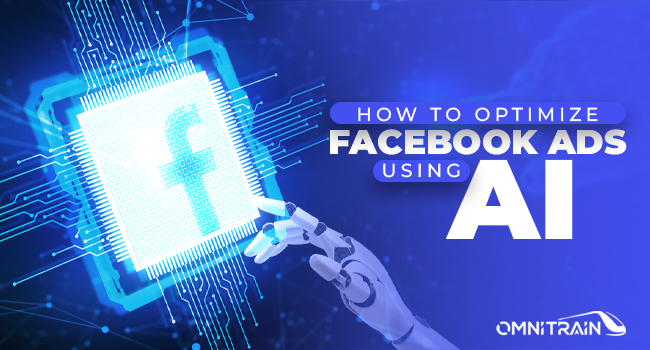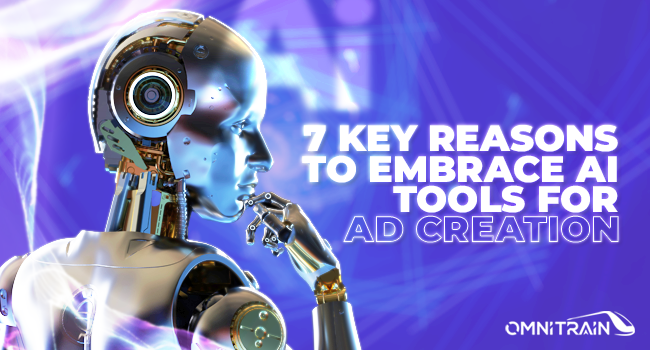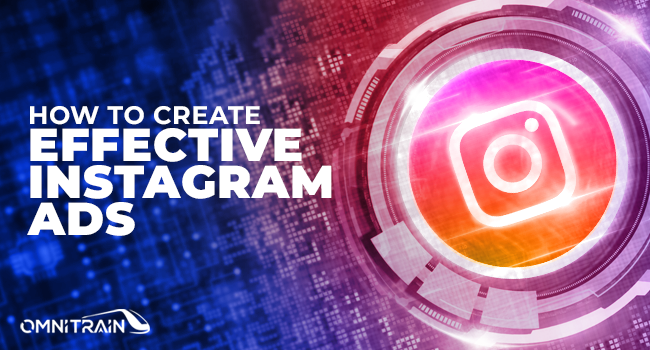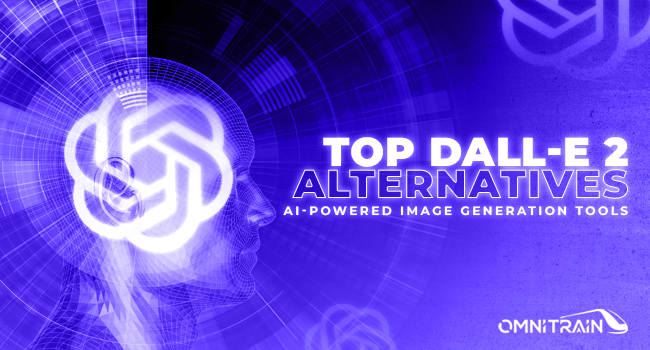AI-driven Marketing Automation: Top 7 Revolutionary Benefits
AI-driven marketing automation is changing the game in digital marketing. By automating repetitive tasks and providing deep insights into customer behavior, AI tools can save you time and help create more personalized marketing experiences. Here’s a quick look at what AI-driven marketing automation can do for marketers:
- Automate repetitive marketing tasks: Cut down on mundane tasks like sending emails and managing social media posts.
- Improve personalization: Tailor campaigns to individual customer needs and preferences.
- Improve data segmentation: Analyze vast amounts of data to understand customer behavior better.
- Streamline customer interactions: Use AI tools to improve service and engagement.
I’m Josh Benson, the founder of OmniTrain. Having spent years in digital marketing, I’ve witnessed how AI-driven marketing automation transforms businesses by making marketing more effective and less time-consuming.
The Evolution of Marketing Automation
Marketing automation has come a long way from its early days of simple email scheduling and basic customer segmentation. Today, the integration of AI has transformed traditional marketing strategies into more dynamic, data-driven approaches. Let’s explore some key aspects of this evolution: programmatic buying, CRM integration, and customer journeys.
Programmatic Buying
Programmatic buying is like having a personal shopper for your ad space. It’s an automated process that uses AI to purchase digital advertising space in real-time, ensuring that your ads reach the right audience at the perfect moment. This method has revolutionized how marketers allocate their budgets, making ad spending more efficient and effective.
Imagine your ad appearing on a website just as a potential customer is browsing for a product you offer. That’s the magic of programmatic buying. It uses data to understand consumer behavior and make instant decisions about where and when your ads should appear.
CRM Integration
Customer Relationship Management (CRM) systems have always been crucial for managing interactions with current and potential customers. With AI-driven marketing automation, CRM integration takes on a whole new level of sophistication.
AI can analyze data from various touchpoints to provide a 360-degree view of each customer. This means you can understand customer needs more deeply and tailor your marketing efforts accordingly. For instance, AI can predict which products a customer is likely to purchase next, enabling you to send personalized recommendations that resonate.
Customer Journeys
Understanding the customer journey is vital for creating meaningful marketing experiences. AI-driven marketing automation helps map out these journeys by analyzing customer interactions across multiple channels. This allows marketers to design campaigns that guide customers smoothly from awareness to purchase, and beyond.
By leveraging AI, marketers can create dynamic customer journeys that adapt in real-time based on user behavior. This ensures that each customer receives relevant content at every stage of their journey, enhancing their overall experience and increasing the likelihood of conversion.
In summary, the evolution of marketing automation—powered by AI—has opened up new possibilities for marketers. From programmatic buying to advanced CRM integration and personalized customer journeys, AI-driven marketing automation is reshaping the landscape of digital marketing.
Next, we’ll explore the key applications of AI in marketing, focusing on predictive analytics, content generation, and real-time personalization.
AI-Driven Marketing Automation: Changing Strategies
AI-driven marketing automation is reshaping how businesses strategize their marketing efforts. By leveraging data insights, personalization, and campaign orchestration, companies can create more efficient and impactful marketing strategies.
Data Insights
In marketing, data is gold. AI tools can sift through mountains of data to uncover patterns and trends that are invisible to the human eye. This capability allows marketers to make informed decisions based on real-time data. For example, AI can analyze customer behavior to predict future buying patterns, enabling businesses to stay one step ahead.
Imagine knowing exactly what your customers want before they do. AI makes this possible by providing deep insights into consumer preferences and behaviors.
Personalization
Personalization is no longer just a nice-to-have; it’s a necessity. With AI-driven marketing automation, businesses can deliver highly personalized experiences to their customers. According to research, 46% of customers are more likely to buy from brands that offer personalized experiences.
AI helps tailor marketing messages to individual preferences, ensuring that the right message reaches the right person at the right time. For instance, AI can dynamically adjust email content based on a customer’s recent interactions with a brand. This level of personalization not only improves customer engagement but also builds brand loyalty.
Campaign Orchestration
Gone are the days of one-size-fits-all campaigns. AI transforms campaign orchestration by allowing marketers to create complex, multi-channel campaigns that adapt in real-time. This means marketers can coordinate messages across various platforms—email, social media, websites, and more—ensuring a seamless customer experience.
AI enables marketers to automate the timing and delivery of these messages, optimizing each touchpoint based on consumer behavior. For example, a customer who browses a product on a website might receive a personalized email with a discount offer shortly after. This orchestration increases the chances of conversion and keeps the brand top-of-mind.
AI-driven marketing automation is changing the game for marketers. By using data insights, personalization, and campaign orchestration, businesses can create more strategic and effective marketing efforts.
Next, let’s explore the key applications of AI in marketing, focusing on predictive analytics, content generation, and real-time personalization.
Key Applications of AI in Marketing
AI is changing the marketing landscape with its innovative applications. Let’s explore some key areas where AI is making a big impact: predictive analytics, content generation, and real-time personalization.
Predictive Analytics
Predictive analytics is like having a crystal ball for your marketing strategy. By analyzing historical data, AI can forecast future trends and customer behaviors. This helps businesses anticipate what products might be in demand and plan campaigns accordingly.
For example, AI can predict which products are likely to sell well during a particular season. This allows marketers to adjust their inventory and promotional strategies in advance. A 2018 McKinsey analysis revealed that marketing is the domain where AI contributes the greatest value, largely due to its predictive capabilities.
Content Generation
Creating content can be time-consuming, but AI is here to help. AI tools can generate high-quality articles, social media posts, and even personalized emails. By analyzing data, AI identifies trends and customer preferences, allowing businesses to create content that resonates with their audience.
For instance, AI can recommend the best keywords to improve search engine rankings, driving more organic traffic. According to Gartner, 30% of all outbound marketing content will be AI-generated by 2025. This highlights how AI is becoming an integral part of digital marketing.
Real-Time Personalization
In marketing, personalization is key. AI-driven marketing automation allows businesses to deliver real-time personalized experiences. With AI, marketers can tailor messages to individual preferences, ensuring the right message reaches the right person at the right time.
For example, AI can adjust website content based on a user’s previous interactions. If a customer frequently browses a particular product category, the site can highlight related products or special offers when they visit. This level of personalization boosts engagement and builds brand loyalty.
In summary, AI is revolutionizing marketing with predictive analytics, content generation, and real-time personalization. These applications not only improve marketing strategies but also create more meaningful connections with customers.
Now, let’s explore the benefits of AI-driven marketing automation, focusing on operational efficiency, customer engagement, and ROI optimization.
Benefits of AI-Driven Marketing Automation
AI-driven marketing automation is transforming how businesses operate, engage with customers, and optimize their return on investment (ROI). Let’s explore these benefits in detail.
Operational Efficiency
AI-driven marketing automation acts like a super-efficient assistant that never sleeps. It handles repetitive tasks such as data entry, email scheduling, and social media management. This allows your team to focus on creative and strategic work.
AI automation can also increase productivity by streamlining workflows. For instance, AI tools can manage multi-channel marketing campaigns from a single platform, reducing the need for manual intervention. This not only saves time but also cuts costs, allowing businesses to allocate resources more effectively.
Customer Engagement
With AI, customer engagement reaches new heights. AI-driven tools personalize interactions by analyzing customer data to understand preferences and behaviors. This means businesses can deliver custom messages that resonate with their audience, fostering deeper connections.
For example, AI can power chatbots that provide instant, personalized responses to customer inquiries. This ensures a smooth and satisfying customer journey, enhancing brand loyalty. In fact, 46% of customers are more likely to purchase when they receive a personalized experience.
ROI Optimization
AI-driven marketing automation is a powerful tool for maximizing ROI. By leveraging data insights, businesses can make informed decisions and fine-tune their strategies to achieve better results.
AI analytics can uncover hidden patterns and trends, guiding marketers in optimizing campaigns. This precision targeting ensures that marketing efforts reach the right audience, increasing the likelihood of conversions. Additionally, AI can automate A/B testing to continuously improve campaign performance.
In summary, AI-driven marketing automation improves operational efficiency, boosts customer engagement, and optimizes ROI. These benefits make it a game-changer for businesses looking to thrive in the digital age.
Next, we’ll dig into the challenges and ethical considerations that come with AI-driven marketing automation.
Challenges and Ethical Considerations
As exciting as AI-driven marketing automation is, it’s not without its problems. Let’s explore some key challenges and ethical concerns.
Bias in AI
A challenge is bias. AI systems learn from data, and if that data is biased, the AI will be too. For instance, if an AI algorithm is trained on data that favors a particular demographic, it might unfairly target marketing efforts towards that group while ignoring others. This can lead to skewed marketing practices and damage a brand’s reputation.
To combat bias, it’s crucial to regularly audit and update AI algorithms. Ensuring diverse data sets and incorporating fairness checks can help create more balanced outcomes.
Transparency
AI algorithms are often complex, and their decision-making processes can be a mystery even to their creators. This lack of transparency can make it hard for businesses to understand how AI reaches its conclusions, leading to a trust gap.
Building transparency involves making AI processes more understandable. Companies should strive to explain how AI tools work and the logic behind their decisions. This can help build trust with both employees and customers.
Data Privacy
With great data comes great responsibility. The use of AI in marketing automation means handling vast amounts of consumer data. This raises significant concerns about data privacy and security.
To stay compliant with privacy regulations, businesses must ensure they have customer consent to use their data. A simple checkbox at data collection can often suffice, but be clear about how the data will be used. Businesses should also invest in robust data protection measures to safeguard customer information.
Working closely with a Chief Information Security Officer (CISO) or consulting industry-specific privacy regulations like HIPAA for healthcare can provide guidance. Collaborating with third-party platforms that offer built-in security features can also offer peace of mind.
In conclusion, while AI-driven marketing automation offers numerous benefits, addressing these challenges and ethical considerations is crucial. By doing so, businesses can harness the power of AI responsibly and effectively.
Frequently Asked Questions about AI-Driven Marketing Automation
How is AI used in marketing automation?
AI plays a crucial role in marketing automation by offering personalized recommendations that improve customer experience. For example, AI can analyze consumer behavior and suggest products they are likely to purchase, similar to how MovingWaldo uses AI to tailor messages based on customer data like language preferences and browsing history.
AI also enables data-driven decisions by processing vast amounts of consumer data to identify patterns and trends. This helps marketers understand what works and what doesn’t, allowing them to optimize campaigns and improve engagement.
What is AI-driven automation?
AI-driven automation refers to the use of artificial intelligence to handle tedious tasks that would otherwise consume significant time and resources. This includes automating email sequences, social media posts, and customer service inquiries.
By taking over these repetitive tasks, AI frees up marketing teams to focus on strategic pursuits. Marketers can then concentrate on creativity and innovation, developing impactful campaigns and exploring new market opportunities.
What is AI-driven marketing?
AI-driven marketing leverages consumer data to create highly targeted and personalized marketing strategies. It involves using AI technologies to analyze customer preferences and behaviors, ensuring that marketing efforts resonate with the target audience.
However, with the power of AI comes the responsibility to address ethical concerns. It’s vital to ensure that AI systems are transparent and unbiased, and that consumer data is handled with the utmost care. This includes obtaining explicit consent and protecting data privacy to maintain trust and compliance with regulations.
By understanding these aspects of AI-driven marketing automation, businesses can effectively integrate AI into their strategies, leading to improved customer experiences and improved marketing outcomes.
Conclusion
AI-driven marketing automation is changing how we create and deliver ads, and OmniTrain is at the forefront of this revolution. Our platform uses AI to craft AI-powered ads that are not only efficient but also emotionally resonant, connecting with audiences on a deeper level.
One of the standout features of OmniTrain is its ability to generate high-converting social media ads in mere seconds. This means marketers can spend more time focusing on strategy and less on the nitty-gritty of ad creation. No design skills are needed, and there’s no reliance on stock assets. Our AI does the heavy lifting, ensuring that each ad speaks directly to the emotions of the target audience.
But why is emotional resonance so important? Studies show that ads that connect emotionally with viewers are more likely to convert. They create a lasting impression, making the brand memorable and fostering loyalty. With OmniTrain, you don’t just create ads; you create experiences that resonate.
As AI continues to evolve, so too will the capabilities of marketing automation. OmniTrain is committed to staying at the cutting edge, providing tools that not only meet current needs but anticipate future trends. By leveraging the power of AI-driven marketing automation, businesses can achieve operational efficiency, improve customer engagement, and optimize ROI.
Ready to see how OmniTrain can transform your ad creation process? Find more about our AI-powered ad creation platform and start creating ads that truly connect.












